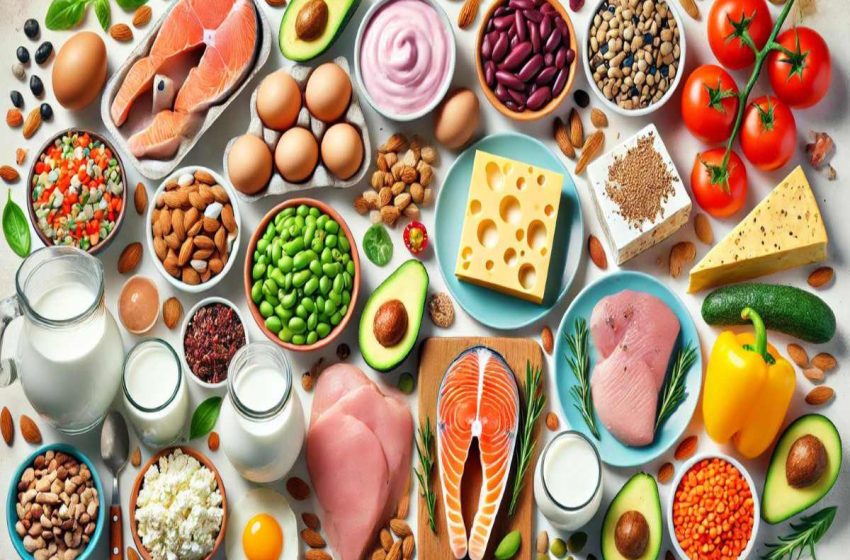
Wellhealthorganic.com Protein
Wellhealthorganic.com Protein
Protein serves as a fundamental building block for our bodies, playing crucial roles in muscle development, immune function, and overall health. Let’s explore the various aspects of protein and its importance in our daily nutrition.
Table of Contents
What is Protein?
Proteins are complex molecules made up of amino acids, often called the “building blocks of life.” These molecules are essential for nearly every biological process in our bodies, from repairing tissue to producing hormones and enzymes.
Recommended Daily Intake
The general recommendation for protein intake varies based on several factors:
For Average Adults
Most adults should consume 0.8 grams of protein per kilogram of body weight daily. However, this amount increases for active individuals and athletes.
For Athletes and Active Individuals
Active people may need between 1.2 to 2.0 grams of protein per kilogram of body weight to support muscle recovery and growth.
For Elderly Individuals
Older adults often require more protein to maintain muscle mass and prevent sarcopenia, typically ranging from 1.0 to 1.2 grams per kilogram of body weight.
Best Sources of Protein
Animal Sources
– Lean meats such as chicken, turkey, and beef
– Fish like salmon, tuna, and cod
– Eggs and dairy products including milk, yogurt, and cheese
Plant-Based Sources
– Legumes including lentils, chickpeas, and beans
– Nuts and seeds
– Quinoa and other whole grains
– Soy products like tofu and tempeh
Benefits of Adequate Protein Intake
Muscle Health
Protein helps build and maintain muscle mass, especially when combined with regular exercise. It’s particularly important for preventing muscle loss during weight loss or aging.
Metabolic Function
A protein-rich diet can help boost metabolism and increase satiety, making it beneficial for weight management and overall health.
Recovery and Repair
Protein is essential for healing wounds, repairing tissue damage, and supporting overall recovery after exercise or injury.
Timing Your Protein Intake
Pre-workout
Consuming protein before exercise can help provide amino acids for muscle protection during training.
Post-workout
The post-exercise window is crucial for protein consumption to support muscle recovery and growth.
Throughout the Day
Spreading protein intake across meals helps maintain steady amino acid levels in the body.
Potential Concerns and Considerations
Kidney Function
While healthy individuals can typically handle high protein intake, those with kidney issues should consult healthcare providers about appropriate protein levels.
Quality Over Quantity
Focus on consuming high-quality protein sources rather than simply increasing protein intake through processed foods.
Digestive Health
Some people may need to adjust their protein sources based on individual digestive tolerances and preferences.
Conclusion
Protein remains a crucial nutrient for human health, and understanding its proper intake, sources, and benefits can help individuals make informed dietary choices. Remember to consult with healthcare professionals for personalized advice on protein requirements based on individual needs and health conditions.


